PhD Students
 Angela Jansen holds a BA Cultural Anthropology and a MSc. International Development Studies from the University of Amsterdam with a specialization in Holocaust and Genocide Studies. In 2007 she went to Rwanda, where she interviewed male and female prisoners in Kigali Central Prison “1930”, about their participation in the genocide. Since 2008 she has worked with several non-government organizations in the Netherlands, Haiti, Cameroon and DR Congo which focused on peacebuilding and psychosocial support after conflict or natural disaster. In 2013 Angela started to work as a Head of Programs for Community Based Sociotherapy in Rwanda and recently she co-founded the International Institute for Community Based Sociotherapy (IICBS).
Angela Jansen holds a BA Cultural Anthropology and a MSc. International Development Studies from the University of Amsterdam with a specialization in Holocaust and Genocide Studies. In 2007 she went to Rwanda, where she interviewed male and female prisoners in Kigali Central Prison “1930”, about their participation in the genocide. Since 2008 she has worked with several non-government organizations in the Netherlands, Haiti, Cameroon and DR Congo which focused on peacebuilding and psychosocial support after conflict or natural disaster. In 2013 Angela started to work as a Head of Programs for Community Based Sociotherapy in Rwanda and recently she co-founded the International Institute for Community Based Sociotherapy (IICBS).
In line with her work in Rwanda, she will be conducting a PhD research on the intergenerational legacies of the 1994 genocide against the Tutsi. Her study will specifically focus on intergenerational narratives in families of genocide perpetrators and how these narratives influences the everyday life experiences of their descentants and their narrative identity formation.
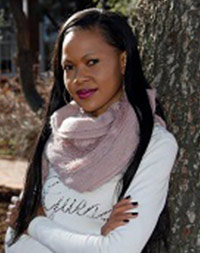
Lerato Machetela
is a registered/licensed Clinical Psychologist and a PhD student in Psychology. Her research titled “Intergenerational Trauma in Jagersfontein," stems from her work as a clinical psychologist in Jagersfontein, where she established a Gumboots dance group as a psycho-edutainment program for the male youth in this community. The positive impact of using arts-based method with the youth inspired her to further explore the use of PhotoVoice as a research methodology. The study seeks to broaden the conceptualization of trauma to consider issues of the “everyday" reality of life among young people born after the fall of apartheid, and to explore the impact of everyday experiences of humiliation and depravity in young people's sense of identity. To this extent, she brings intersectionality to her study, and engages meaningfully with the notion of socially responsive research. She has been recognised for her leadership in social responsiveness and interviewed widely on several networks. Some of these interviews can be viewed on these websites:here;
here;
here;
here
E-mail: lerato.mizelle@gmail.com
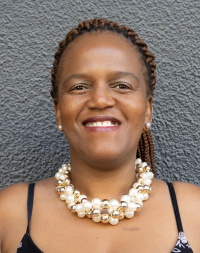 Dorothy Calata
Dorothy Calata
An Exploration of the Intergenerational Narratives of the Cradock Four Political Widows and “Political Orphans"
This PhD thesis is an exploration of the intergenerational narratives of the political victims whose husbands and fathers, Fort Calata, Matthew Goniwe, Sicelo Mhlauli, Sparrow Mkhonto, known as the Cradock Four, were brutally murdered during the apartheid era. Dorothy, clinical psychologist by profession, firstborn daughter of Fort Calata, one of the slain Cradock Four, aims to revisit the narratives of the lived experiences of these family members. She aims to understand their interpretation and meaning making of unending political widowhood and political orphanhood of a publicised political death. Her interests are in intergenerational transmission of trauma, memory, violence, social justice, in transitional (post conflict) states. She also wants to understand how these family members interpret their role of being interlocutors in these states.
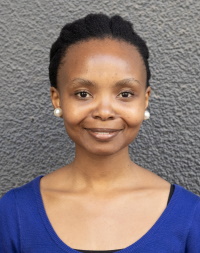 Lireko Qhobela
Lireko Qhobela
A Practice-led Approach Exploring the Experiences of the Drama for Life Theatre Company Working with High School Learners on Topics of Love, Sex and Intimacy
The project seeks to understand how applied drama and theatre practitioners are affected by their practice in the post-apartheid contexts and how the youth communities receive these interventions. The project was inspired by the desire to inquire about the mental and emotional well-being of South African actors. In part, it therefore wishes to discover the possibilities of how a collective trauma history impacts on actors whose job is to constantly translate, embody and present narratives of the post-apartheid.
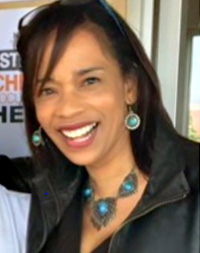
Marlene
Bossett
Marlene is a former Torture and Captivity Project
Manager at the Trauma Centre for Survivors of Violence and Torture in Cape Town.
She is a Transformation Specialist who has worked both nationally and
internationally in the areas Change Management, Anti-Discrimination and Trauma.
Marlene has an undergraduate degree from the University of Cape Town and
postgraduate degrees from the University of Cape Town and New York University.
Her research will focus on transgenerational trauma, with specific reference to
violent institutionalised oppression.
Masters Students
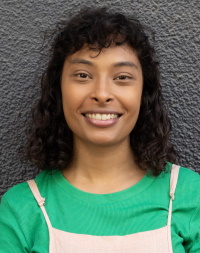 Ashley Solomons
Ashley Solomons
Ontological Designing Participatory Archives
The research explores reflexive and collaborative visual storytelling methods within an intergenerational South African context for the purpose of inviting spaces for empathy and social connection.
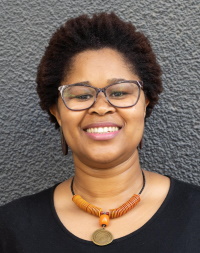 Ayanda Nyoka
Ayanda Nyoka
Exploring Lived Experiences of Black South African Women Testifying at Church About Their Sufferings: A Case of a Pentecostal Church in a Cape Metro Township
The aim of this study is to explore the lived experiences of black South African women on witnessing about their personal suffering in a Pentecostal church context and how this experience shapes how they make sense of their suffering. Broadly this study seeks to contribute to trauma literature on witnessing, with a specific focus on religious forms of testimony in relation to personal suffering through the lived experiences of black South African women.
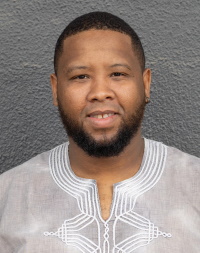 Westley Ceasar
Westley Ceasar
Hairstory: Exploring Coloured Students' Experiences and Expression of Identityat a Historically White Institution
The proposed research seeks to explore whether and in what ways, young South Africans (i.e., the “born-free" generation), self-identifying as “Coloured" ascribe (assimilate), or feel pressure to ascribe, to White norms at a historically White institution, particularly concerning embodied markers of identity (such as hair and skin tone). By using a qualitative approach, it is essential for the research to explore whether Whiteness is still being perceived (and pursued) as a normative standard more than 25 years after apartheid and how it influences social identity construction in certain spaces. Moreover, it is crucial to establish the pervasiveness of such ideas and the factors that might be contributing to holding such world views in place. Of significance will be to explore whether identity formation for these students in the current democratic dispensation is still being informed by what Fanon (1989) considered a desire of Black people to be White, particularly because natural hair movements suggest that the formulation of social identities continue against the ultimate standards/ideals of Whiteness and could possibly be regarded as a rebellion against Whiteness.
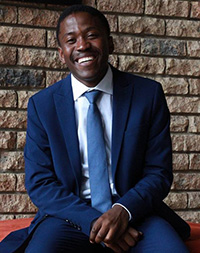 Siseko Mkalipi
Siseko Mkalipi
I
hold a Bachelor of Science (Hons) in Occupational Therapy from the University
of Cape Town. I have worked as an occupational therapist in the
clinical, development and corporate sector. Currently to pursue a MA in
Psychology, I am interested in the power of occupation for healing in the
context of political violence and historical trauma. The proposed research
project seeks to explore collective occupations and healing for victims and
perpetrators of genocide in Rwanda. Inspired by the complexities of the
project of reconciliation and transformation in
post-conflict/post-political violence contexts, this research project adopts an
interdisciplinary approach to the understanding of the concept and
process of healing; and introduces and positions the construct of
collective occupations’ potential in understanding and facilitating
healing, reconciliation and transformation in the context of political violence
and historical trauma.

Unopachido
Akwande Mubaiwa
Unopachido is an aspiring social psychologist. She describes herself as a
passionate and artistic individual, who strives to find innovative ways to
create transformative and diverse spaces. She is currently pursuing her
Master’s in Psychology (thesis) whereby her research focuses on the experiences
of queer students and men of colour in relation to white, Afrikaner hegemonic
masculinity in Stellenbosch University men’s residences. The purpose of her
study seeks to bring the experiences of students of colour and queer students
at historically white universities into the forefront, and fill the gap regarding
masculinity studies in University residences. She seeks to utilise her
platforms as a means to raise awareness pertaining to student mental health,
and the importance of equipping students with the necessary skills and tools
which would enable them to navigate their mental health, beyond the lecture
hall. Unopachido is an intersectional feminist, active member of the youth and
determined to bring critical issues into the forefront.
Previous Post-graduate Students

Mihlali Tshikila has completed his Master’s in Psychology with distinction. His thesis was titled
“(Re-)Imagining Transformation in Sport: Black Male Rugby Players’ Experiences of Model-C schools.” This study repositions former Model-C schools as the biggest feeder of professional rugby unions, and thus as the cite that needs to be inspected in order to understand the journey of transformation in rugby within South Africa. The study explores the experiences of black rugby players at Model C schools in Cape Town, in order to understand what factors either facilitate or constrain their inclusion within their schooling environments. As the main feeders of professional rugby players, Model C schools need to improve on both their imagining and practice of transformation for there to be changes at the professional and national level of rugby.
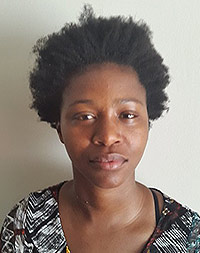 Zikhona Tumi Mpofu has completed her Master's degree in Psychology. Her thesis was titled
“This Dialogue Thing: An Analysis of Narratives of Black and White Women Living in South Africa Engaged in Sustained Dialogue on Race and Race Relations." The aim of her research was to explore the experiences of different women as they encounter each other in close and sustained dialogue across racial and class divide. The study seeks to address some of the limitations on Contact Theory by looking at processes in intergroup relations in a naturalistic setting, as opposed to a laboratory or orchestrated setting, where people who are not equal in terms of class and racial have volunteered to be part of an interracial dialogue.
Zikhona Tumi Mpofu has completed her Master's degree in Psychology. Her thesis was titled
“This Dialogue Thing: An Analysis of Narratives of Black and White Women Living in South Africa Engaged in Sustained Dialogue on Race and Race Relations." The aim of her research was to explore the experiences of different women as they encounter each other in close and sustained dialogue across racial and class divide. The study seeks to address some of the limitations on Contact Theory by looking at processes in intergroup relations in a naturalistic setting, as opposed to a laboratory or orchestrated setting, where people who are not equal in terms of class and racial have volunteered to be part of an interracial dialogue.
E-mail: tumizee@yahoo.com
Elina Kamanga has completed her Master's in Psychology. Her thesis was titled “Black Students' Lived Experience with Racial Microaggression at a Historically White University". The subject matter of racial microaggression has attracted a significant amount of devotion in academia, however, most insights have been gained from a predominately American framework. Elina's research attempts to address this scarcity of local research by narrating the experiences of racial microaggressions faced by self-proclaiming Black students attending a historically White South African university where Eurocentric institutional ethos continues to be maintained. The privilege status of a White heritage in traditionally White institutions can prove to be an isolating and unwelcoming experience for most Black students. Thus, the aim of Elina's research is to gain insight into the daily experiences of racial microaggression that affect Black students and the psychological, social or academic impact thereof.
E-mail: elinakamanga@ymail.com
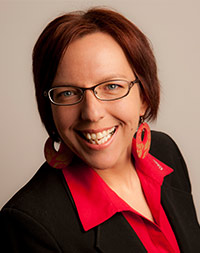 Michelle Nöthling was a Master’s student engaged in an interdisciplinary project titled: “A Narrative Exploration of the Meaning of Motherhood among Survivors of Genocide Rape in Rwanda.” She is a member of the Golden Key International Honour Society, and for her work as a writer, received an Excellence Award at the annual MACE (Marketing, Advancement and Communication in Education) congress. Through her academic pursuit, Michelle is establishing herself in the field of feminism, gender, and identity within the context of trauma.
Michelle Nöthling was a Master’s student engaged in an interdisciplinary project titled: “A Narrative Exploration of the Meaning of Motherhood among Survivors of Genocide Rape in Rwanda.” She is a member of the Golden Key International Honour Society, and for her work as a writer, received an Excellence Award at the annual MACE (Marketing, Advancement and Communication in Education) congress. Through her academic pursuit, Michelle is establishing herself in the field of feminism, gender, and identity within the context of trauma.
E-mail: michellenothling@gmail.com
 Janine Markram
Janine Markram
A Qualitative Study Exploring Female University Students’ Experiences of Sexual Harassment
Within
the South African context, gender violence and sexual harassment have
become ‘normalised’ to the extent where many women live in fear of being
violated in many different ways. Many accounts of sexual harassment
shed light on what the victim has done to initiate the harassment and
what they could have done to prevent it from occurring. This has created
a culture of victim-blaming where the victims experience repeated
victimisation and a serious need to address the complex layers of
women’s experiences. The aim of my study is to explore female
Stellenbosch University postgraduate students' narrations of their
experiences of sexual harassment that occur within the campus
environment. Thus far in the study, the participants narrated
complexities around naming/labelling their experiences as sexual
harassment and the severity thereof - drawing on dominant discourses and
cultural meanings to position themselves in different ways. With the
distribution of this study’s results to Stellenbosch University, my
hopes are to increase the safety for students at risk of becoming
sexually harassed and create a campus environment where women feel safe
and comfortable enough to come forth and speak about their experiences.

